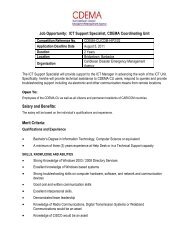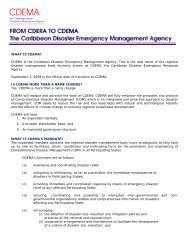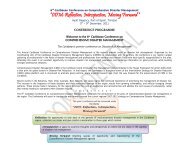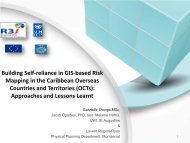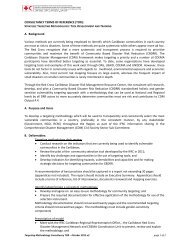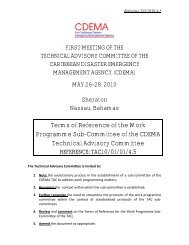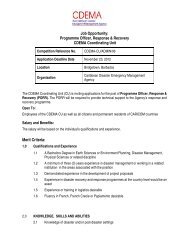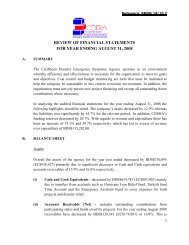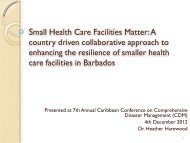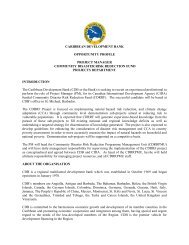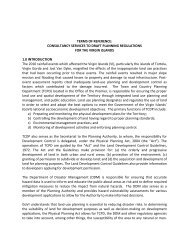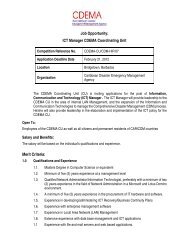Create successful ePaper yourself
Turn your PDF publications into a flip-book with our unique Google optimized e-Paper software.
o<br />
o<br />
o<br />
o<br />
o<br />
o<br />
use of participatory video as a tool both to increase participation and provide<br />
communities with communication and advocacy materials;<br />
development of mentoring skills;<br />
further development of PLA facilitation skills;<br />
development of conflict management skills;<br />
organisational development of community and grass roots organisations;<br />
further development of participatory monitoring and evaluation skills.<br />
3.3.7.2 Workshop outcomes<br />
It is anticipated that, by the end of the workshop, participants will be able to:<br />
a) explain climate change and its relationship to disaster risk reduction to communities in a way that is<br />
accessible to all key stakeholder groupings;<br />
b) facilitate interactive sessions with communities to discuss how climate change considerations can be<br />
incorporated into existing or proposed disaster risk reduction initiatives;<br />
c) use the Module and Handbooks effectively to conduct training in communities for community adaptation<br />
responses;<br />
d) apply a range of facilitation techniques and state when each might be most appropriate.<br />
The workshop will be highly interactive and will model a wide range of facilitator tools and methods, which will<br />
then be debriefed with participants to highlight and discuss when each may be most appropriate. Participants<br />
will also be given opportunities to apply a selection of the techniques in sessions that they facilitate after small<br />
group exercises. As with the Module, the techniques are likely to include:<br />
Icebreakers and energisers<br />
Audio-visual presentations and lectures<br />
Large group discussions (in plenary)<br />
Small group work and discussions<br />
Questioning techniques<br />
Brainstorming<br />
Individual reflection<br />
Practical exercises using participatory learning and action (PLA) tools<br />
Case studies<br />
Guiding questions for self-study<br />
Additional reading<br />
3.3.7.3. Design and evaluation<br />
The design and evaluation of the workshop will take place as follows:<br />
a) agreement with <strong>CDEMA</strong> on participant selection criteria and provision of a draft agenda, within one<br />
week of receiving the first round of comments from the CSSSC on the draft Module and Handbooks<br />
b) finalised design of the workshop one week after delivery of the second community workshop;<br />
c) facilitation of a three-day workshop, provisionally during the week of 1-5 November, including oral and<br />
written evaluations on the final day;<br />
d) debriefing with <strong>CDEMA</strong> and CSSSC members who attend the workshops to inform the final revisions to<br />
the Module and Handbooks.<br />
3.3.8 Prepare regional workshop report<br />
CANARI will draft a report on the workshop, following a debriefing session with <strong>CDEMA</strong> and CSSSC members<br />
who attend the workshops, within two weeks of completion of the workshops. The report will include:<br />
15



